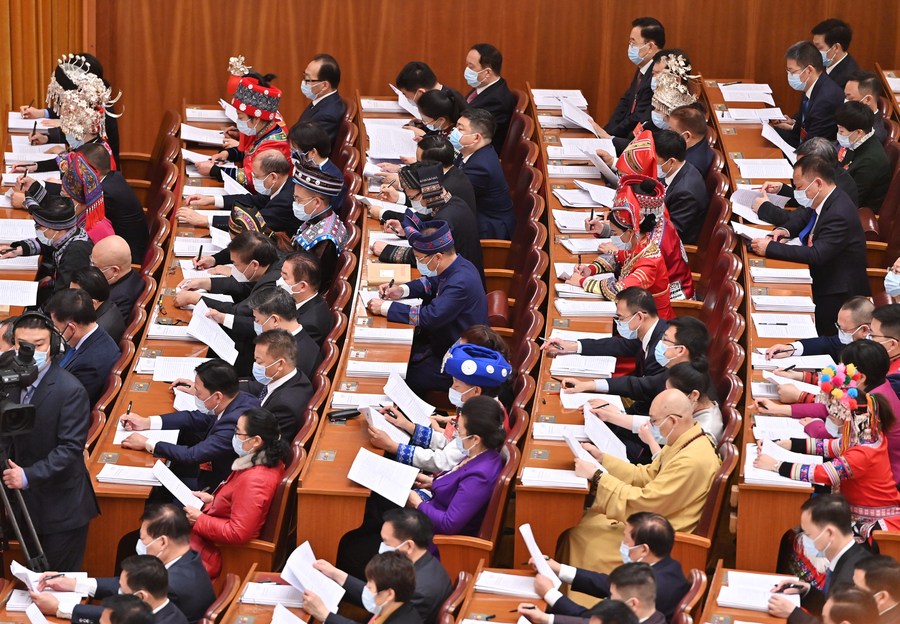China weighs legal amendment to enhance governance
 0 Comment(s)
0 Comment(s) Print
Print E-mail Xinhua, March 10, 2022
E-mail Xinhua, March 10, 2022

China is mulling an amendment to a law on local legislatures and governments as part of the country's drive to modernize its governance system and capacity.
The draft amendment to the Organic Law of the Local People's Congresses and Local People's Governments was submitted for its third reading to the ongoing fifth session of the 13th National People's Congress (NPC), China's top legislature.
Adopted in 1979, the law is going through its sixth amendment, in which a people-centered philosophy of development and whole-process people's democracy are highlighted.
"As a basic law stipulating the organization and operation of local legislatures and governments, it serves as an important institutional guarantee for local state organs of power and administrative organs to exercise their powers and perform their duties," said Wang Chen, vice chairman of the NPC Standing Committee, in an explanatory speech delivered at the session.
When elaborating on the necessity of amending the law, Wang said that it is crucial to ensure law-based and effective governance under the leadership of the Communist Party of China.
ENHANCING SUPERVISION
The draft amendment further specifies the composition of local legislatures, stipulating that committees dedicated to financial and economic affairs, legal affairs and others can be set up by local people's congresses.
"The establishment of such special committees will double the effectiveness of oversight by local legislatures over areas that require professional expertise," said Gao Jianjun, a national lawmaker from central China's Henan Province.
Another highlight of the draft is the empowerment of people's congresses at the county and township levels to supervise the budgets and final accounts of governments at their respective levels.
It also adds new provisions defining the functions and powers of urban neighborhood offices, as the sub-district agencies are assuming an increasing range of responsibilities for public administration. The current law does not prescribe what duties the offices should fulfill.
Stressing the significance of primary-level organs and organizations in China's system of governance, political advisor Lyu Hongbing said that these revisions are essential to develop whole-process people's democracy and will ensure that it is the people who run the country.
IMPROVING GRASSROOTS GOVERNANCE
As stipulated by the current law, local legislatures and governments should perform their duties and functions in accordance with the law. The draft amendment fleshes out such provisions with details.
According to the draft amendment, local people's congresses, the standing committees of local people's congresses at and above the county level and local governments should see to it that the central authorities' decisions are implemented in a timely and faithful manner, and that the Constitution, laws and administrative regulations are enforced within their own administrative regions.
"Part of building a law-based government is ensuring the implementation of the Constitution, laws and administrative regulations," said Lyu.
The draft amendment also responds to new changes in governance at local levels. It says that the governments of different administrative regions at and above the county level can set up special joint working groups based on local realities to implement state-level strategies for regional integrated development. Local governments at and above the county level can also form cross-department response teams in times of major emergency, it says.
"These revisions will facilitate innovation in grassroots governance, enhance the capacity of local governments in delivering services to the people, and inject new vitality into the drive for modernizing the system and capacity for governance," said Cai Hua, an NPC deputy.






Go to Forum >>0 Comment(s)